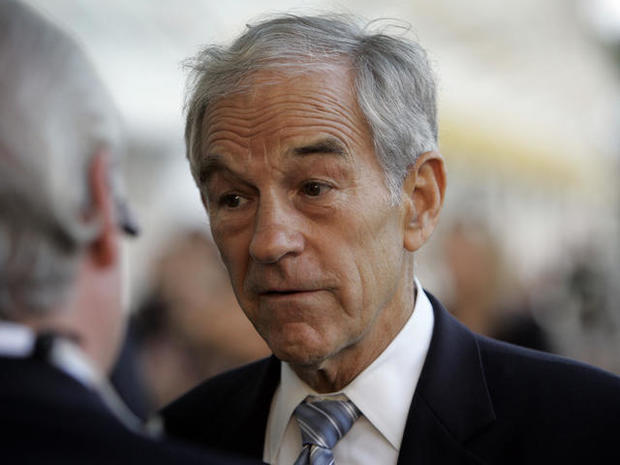Ron Paul Backs "Ground Zero Mosque," Splitting with Son Rand
Libertarian Congressman Ron Paul is breaking with many of his fellow Republicans - among them his son Rand - to support the creation of the planned Islamic cultural center near the former site of the World Trade Center that has come to be known as the "ground zero mosque."
In a statement decrying "demagogy" around the issue, the former Republican presidential candidate wrote late last week that "the debate should have provided the conservative defenders of property rights with a perfect example of how the right to own property also protects the 1st Amendment rights of assembly and religion by supporting the building of the mosque."
"Instead, we hear lip service given to the property rights position while demanding that the need to be 'sensitive' requires an all-out assault on the building of a mosque, several blocks from 'ground zero,'" Paul continues.
He goes on to argue that "the neo-conservatives who demand continual war in the Middle East and Central Asia...never miss a chance to use hatred toward Muslims to rally support for the ill conceived preventative wars."
Adds Paul: "It is repeatedly said that 64% of the people, after listening to the political demagogues, don't want the mosque to be built. What would we do if 75% of the people insist that no more Catholic churches be built in New York City? The point being is that majorities can become oppressors of minority rights as well as individual dictators."
"This is all about hate and Islamaphobia," he argues.
The statement is particularly notable in light of comments on the issue by Paul's son, Kentucky Republican Senate nominee Rand Paul. Rand Paul has said that while he is hesitant to get involved in a local issue, he does not believe the cultural center should be built; "the Muslim community would better serve the healing process by making a donation to the memorial fund for the victims of September 11th," he said.
(By the way, Paul's Democratic opponent in the Senate race, Jack Conway, also opposes the center.)
Rand Paul got in troubleearly in his general election campaign for staking out typically-Libertarian positions, most notably in questioning parts of the Civil Rights Act and Americans with Disabilities Act. He subsequently adopted more traditionally-Republican rhetoric and declined to embrace his father's full-throated opposition to the wars in Afghanistan and Iraq, among other causes important to many libertarians.
